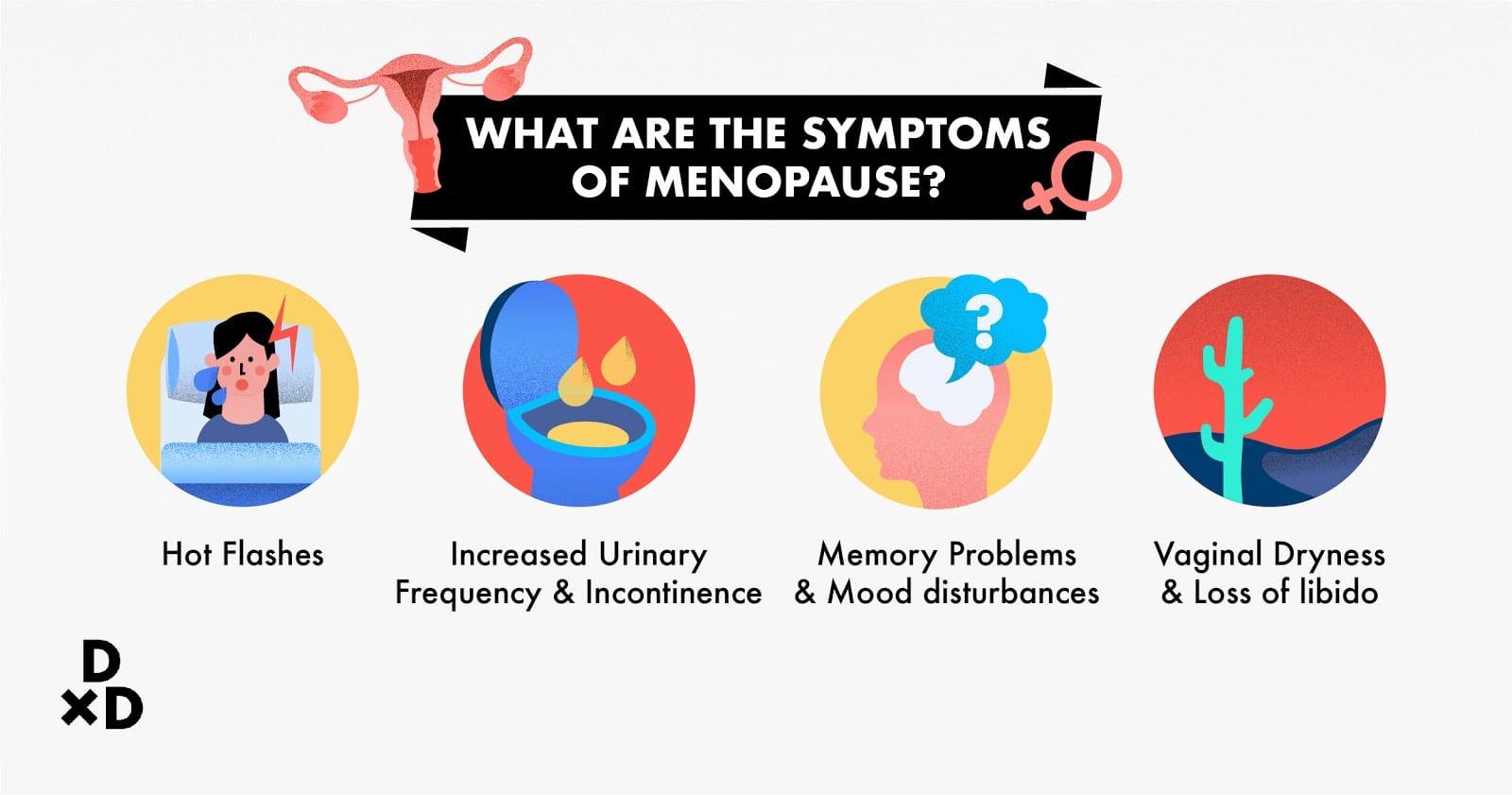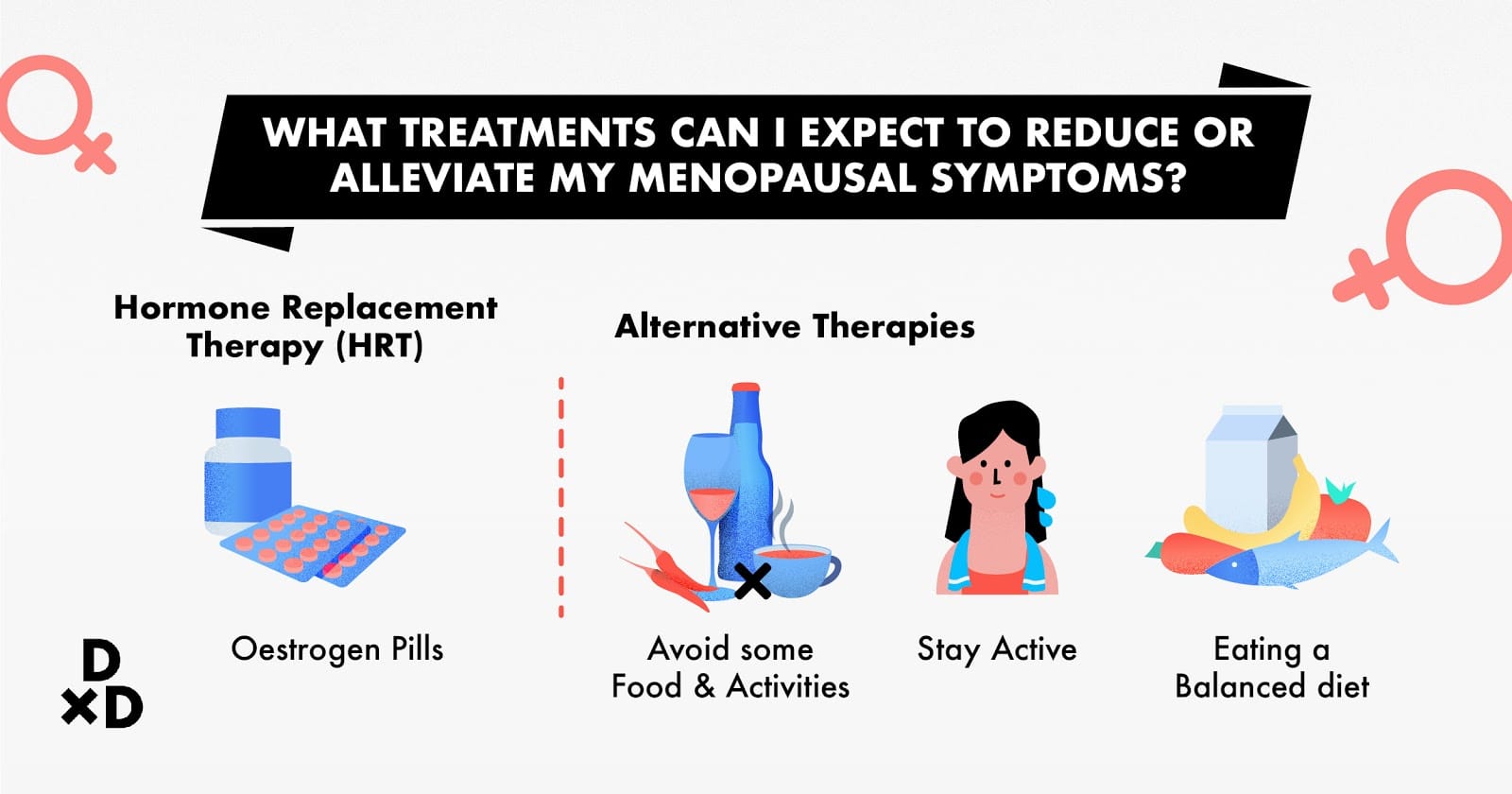Menopause marks the permanent end of a woman’s reproductive years when she experiences her last or final menstruation period.
When menstruation stops for 12 consecutive months, a woman is considered to be postmenopausal.
In Singapore, most women experience menopausal symptoms between the ages of 45 to 50 years old.
Most women breeze through this stage with little to no issues while some may experience symptoms that require medical assistance.
As the body undergoes many changes during menopause, it is important to understand the symptoms and manage them accordingly.
In this article, I will share a comprehensive guide, tackling topics like:
- Recognising menopause
- Common symptoms of menopause
- Treatment options available.
After you're done with this article, why not check out 5 clinics for early menopause in Singapore?
How is Menopause diagnosed in Singapore?
Generally, if you are going through menopause, you might start to notice irregularities with your menstrual cycle.
You might have periods more or less often than your usual cycle, and have bleeding that lasts for fewer days than before.
It is also possible for you to miss one or more periods. And of course, you might experience menopausal symptoms.
The official diagnosis is retrospective and laboratory tests are only necessary to rule out other medical reasons that might mimic menopausal symptoms.
Click here to read this Q&A where a gynaecologist explains how do you know if your menopause has started.
Also read: Hysterectomy: All You Need To Know With A Singaporean Gynaecologist

What are the Symptoms of Menopause?
When your menstrual cycle ceases, there's a drastic decrease in the levels of female hormones such as oestrogen and progesterone. As a result of this, you may experience the symptoms below.
1. Hot Flashes
Hot flashes are a common symptom of menopause and are often attributed to causing sleep disturbances.
Sometimes referred to as night sweats, hot flashes are characterised by:
- A sensation of warmth
- Frequently accompanied by skin flushing and perspiration.
- Chills — As core temperature drops, you may experience chills as well [1].
Hot flashes tend to resolve after menopause.
2. Increased Urinary Frequency and Incontinence
Women going through menopause may experience urinary symptoms such as
- Increased frequency
- lack of voluntary control (Urinary incontinence) [2].
This is also caused by the decrease in oestrogen levels in the body. Such symptoms may contribute to sleep disturbances as well.
3. Memory Problems and Mood Disturbances
Studies have confirmed that the natural transition to menopause exerts a negative impact on immediate and delayed verbal recall [3]. This decline in verbal memory was found to be independent of that expected from normal aging.
However, memory problems caused by the transition tend to resolve after menopause.
Mood swings and irritability is another common symptom of menopause. Just like premenstrual syndrome, mood swings and irritability is caused by the fluctuation of female hormones.
4. Vaginal Dryness and Loss of Libido
The natural decline in your body’s oestrogen levels during menopause can cause vaginal dryness as the blood supply in the vagina is reduced. This negatively affects vaginal lubrication [4].
Related: How can I reduce the pain of pap smear tests due to dryness and menopause?
Vaginal dryness is also a symptom of vaginal atrophy. With this condition, vaginal tissues become thinner and more easily irritated, often leading to discomfort during sex.
The physical discomfort and mood symptoms that you experience during menopause can often result in a loss of libido.
Also read: How can I get relief from vaginal symptoms like itchiness and burning after menopause?
Should I see a doctor if I am going through Menopause?
Most menopausal women, especially Asians, do not experience severe symptoms. The general advice would be that you do not have to consult a doctor unless the symptoms are severe and are affecting your daily life.
If the symptoms are affecting your quality of life — for example, the hot flashes persistently prevent you from getting good sleep, you should seek medical attention.
You should also see the doctor if there are strange irregularities in your periods. This includes:
- Your period bleeding occurs more often than once in 3 weeks
- You have a heavy period flow
- You have spotting between your periods.
- If you start bleeding again(even if bleeding is minimal) after no bleeding for 12 months
You should see a doctor for the conditions above. [5].
Also read: The Ultimate Guide to Gynaecological Conditions in Singapore (2021)

What treatments are available to me to alleviate menopausal symptoms in Singapore?
There are three treatment methods that your doctor may recommend to deal with menopausal symptoms.
1. Hormone Replacement Therapy (HRT)
Hormone Replacement Therapy (HRT) is one of the most commonly prescribed drug treatments to control menopausal symptoms.
HRT can be taken as:
- Tablets
- Skin patches
- Gels
- Vaginal cream
- Implants.
HRT can be oestrogen-only or a combination of oestrogen and progestogen.
A woman who has had her uterus removed needs only oestrogen. A woman who still has her uterus should take oestrogen and progestogen to protect the uterus [6].
Below are some common HRT treatments:
Oestrogen pills — most effective treatment option for relieving menopausal symptoms such as hot flashes.
vaginal oestrogen — the administration of vaginal creams, tablets, or rings that release a small amount of oestrogen, which is absorbed by your vagina. They may also relieve discomfort when having sexual intercourse, as well as manage some urinary symptoms.
Also related: How old can women be before they must stop taking estrogen-containing contraceptive pills because of menopause?
2. Alternative Therapies
Your doctor may recommend herbal supplements such as:
- Red clover
- Eucommia bark tablets
These supplements help to control menopausal symptoms as they are shown to have oestrogen-like effects on the body.
However, some women may experience side effects after taking these supplements, which is why doctors would only recommend it on a case-by-case basis after assessing your suitability.
Likewise, a plant oestrogen-based diet may also be recommended, but only after being assessed for suitability.
3. Lifestyle Changes
If you are averse to medication, you can also cope with the symptoms of menopause by making adjustments to your lifestyle and incorporating some healthy habits.
Avoid food or activities that can trigger your hot flashes— These may include hot beverages, caffeine, alcohol, spicy foods, and being under the sun or outside in hot weather.
Stay active — Stay active by exercising regularly to keep your bones and muscles strong as Menopause can increase the risk of chronic conditions such as osteoporosis in women
Go for regular health screenings — Breast cancer screening should start for all women over 40 and colon cancer screening for women over 50. Sexually active women should also have regular Pap smears.
Eating a balanced diet —Your diet should Include fruits, vegetables, and whole grains, and you should limit your intake of saturated fats and oils, as well as sugars.
Conclusion
If you are experiencing menopausal symptoms and are unsure of how to deal with them, always consult a doctor. Do discuss the available options carefully with your doctor. Allow them to make a complete evaluation and develop an appropriate treatment plan for you.
Discussing about sex and menopause may be uncomfortable for you, but remember that your doctor is there to take care of your health and well-being without judgment.
Ask questions and be specific about your concerns. We wish you well in this next phase of life.
If you are experiencing discomfort due to your menopause, find the best gynaecologist and book an appointment with us here.
